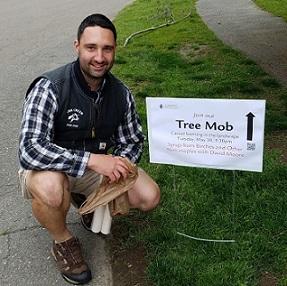
Graduate Student
As a doctoral student, David’s research on syrup production has both applied- and basic-science components. One of his projects focuses on developing best management practices for harvesting sap and producing syrup from a wide range of deciduous, woody angiosperms, including maples, birches, walnuts, beeches, sycamores, basswoods, and hophornbeams. Another focuses on making sap harvesting more efficient by developing tapping methods that maximize sap yields while minimizing tap hole sizes. To address these practical research objectives, an in-depth knowledge of tree anatomy and physiology is required. Consequently, these projects will also determine the environmental drivers of sap flow and sap pressurization in different species, how wood anatomy and physiology respond to these environmental factors to bring about sap flow and sap pressurization, and how different species compartmentalize tap hole wounds. Analytical chemistry techniques will also be used to determine the chemical compositions of saps and syrups from study species.
Prior to graduate school, David ran The Crooked Chimney in Lee, New Hampshire, for several years, where he produced birch and sycamore syrup commercially. His experiences in the syrup industry have been instrumental in informing his research. David’s work as a producer and as a scientist has been featured in or at The Sugarmaker’s Companion: An Integrated Approach to Producing Syrup From Maple, Birch, and Walnut Trees, Northern Woodlands, the Associated Press, the Arnold Arboretum of Harvard University, the New Hampshire Union Leader, Living on Earth, New Hampshire Public Radio, From the Forest, INSPIRED, UNH Today, Science Friday, The No-Till Growers Podcast Network, and The Boston Globe.
Before graduate school, David worked on a variety of farms, nurseries, and landscaping crews. David also completed a master's degree at the University of Connecticut, where he studied carbon and nitrogen cycling in turfgrass soils under the guidance of Karl Guillard.